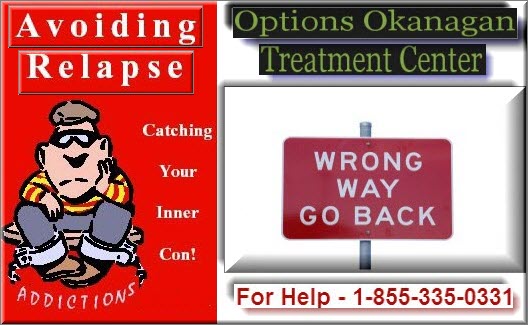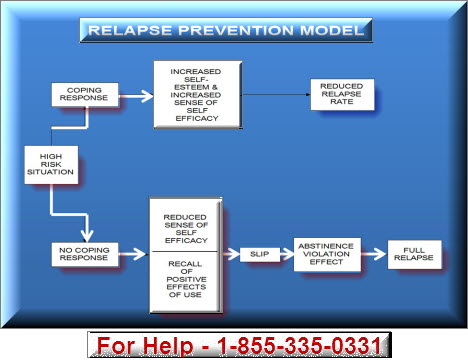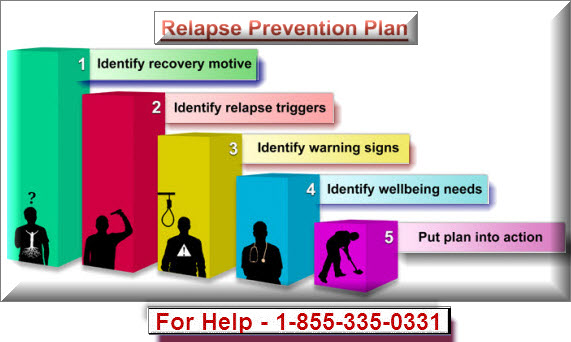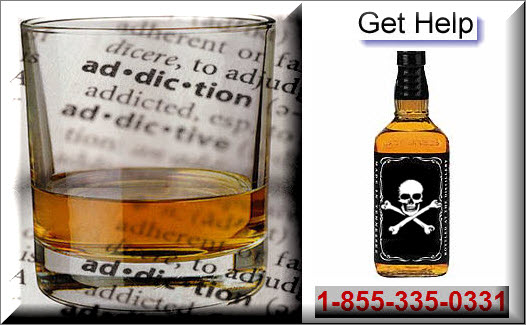The aim of Options Okanagan, a Kelowna Drug and Alcohol Treatment Center is to offer individual strategies and methods that will help and assist them recognize and understand the complex and complicated processes of relapse and backsliding that can place their recovery from addictions at risk. Relapse or backsliding is an intricate and elaborate process and not really a spontaneous or impulsive event which suddenly occurs unexpectedly, all of a sudden or without warning. Relapse and backsliding behaviors that can threaten an individual’s sobriety could include emotional, both mental and physical processes. To prevent and avoid relapses and maintain and keep an individual’s invaluable recovery, it is essential and important to be aware and conscious of the symptoms, recognize and identify the cues and also have a solid plan or strategy in place to prevent and avoid relapse.

The Emotional and Psychological Relapse
Just about every individual in recovery experiences the effects and consequences of addiction uniquely, and a strong recovery starts with being conscious of how they are feeling and reacting to everyday situations. A person might experience the signs and indicators of an emotional and psychological relapse that are comparable to the effects of post-drug or alcohol detox. As an individual encounters stressful occasions in their life, their emotional as well as psychological addiction to drugs or alcohol may urge them to cope with substance abuse and fuel a relapse.
If an individual has noticed changes in their behavior that might be an indication associated with an emotional relapse, it is essential and crucial that they ask for help and assistance and protect their sobriety from a relapse. A vital and essential part of aftercare or a peer recovery network after rehabilitation is to prevent the occurrence of relapse and backsliding with a strong and solid support network for assistance and guidance. A person needs to call the experienced professionals at Options Okanagan Drug Treatment Center immediately as part of their relapse prevention plan and strategy.

The Stages Associated with Mental Relapse
The mental stage of the relapse process can start by contemplating or thinking about using drugs again, getting in touch with old friends or even fantasizing about drug or alcohol use. If a person continues to experience and encounter these signs and indicators associated with mental relapse, they might encounter irresistible urges and desires that pressure them to start using drugs, medications or alcohol. Thoughts that might occur during this particular phase may turn out to be stronger in the actual later phase as their addiction attempts to rationalize and justify their return to substance abuse and drug addiction.
Within this phase of mental and psychological relapse, it is actually imperative and crucial that they tell another person in their support network that they are experiencing and going through these dangerous steps towards relapse. Options Okanagan Drug Treatment Center are experienced and skilled in the phases and stages of relapse and can help individuals maintain and keep their recovery.

Physical Relapse
In the event that emotional and mental, psychological urges continue to affect their behavior and conduct without intervention, they might experience the irresistible urge to go to the bar or club, buy alcohol or call their drug dealer. Physical relapse and backsliding is an extremely powerful urge, and it is difficult and tough to control their commitment to recovery from drugs at this point in time. It is important and crucial to ask for help and assistance long before this particular relapse phase happens, nevertheless it is never too far gone to call Options Okanagan for help.

